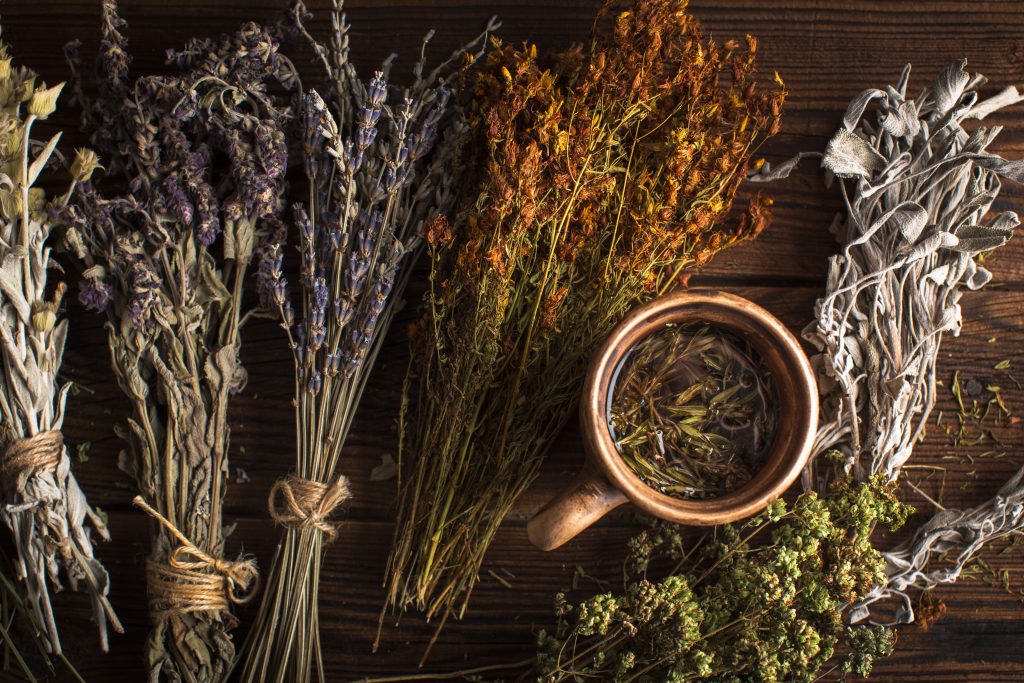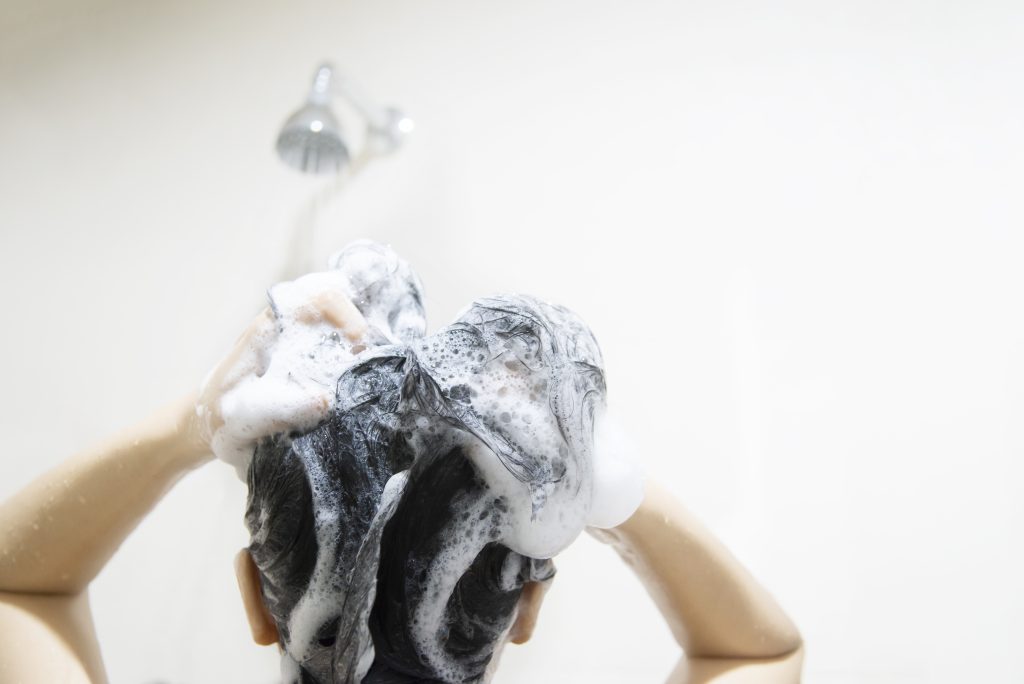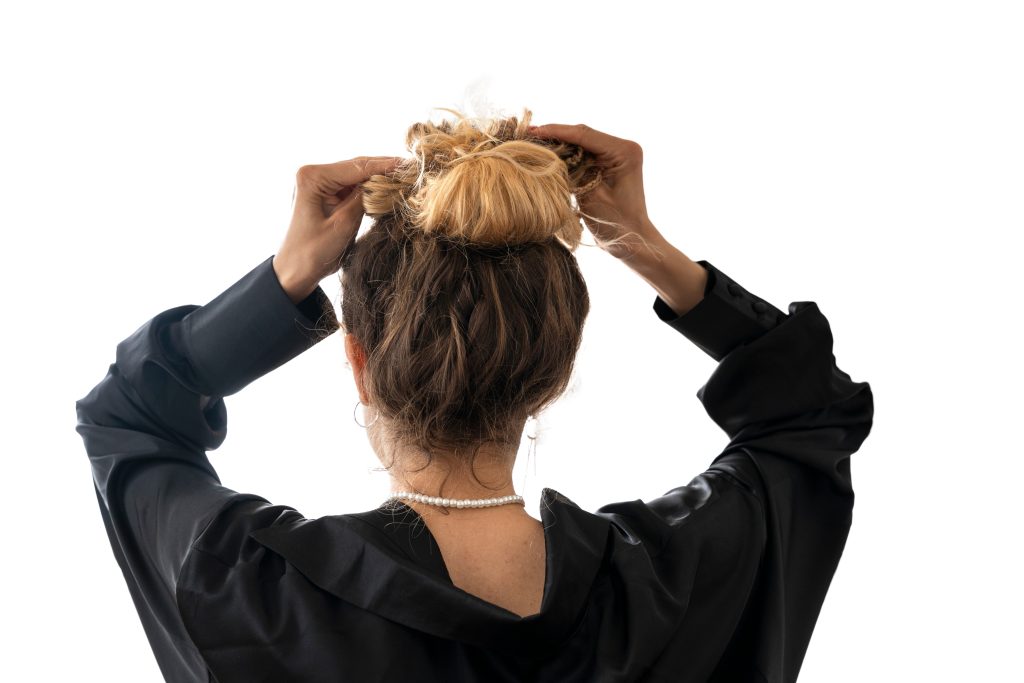Are you seeking natural ways to improve your hair growth? Instead of factory made products, natural herbs can be an excellent way to nourish and protect your hair without relying on harsh chemicals.

In this article, we will explore some of the most effective herbs known for stimulating hair growth and improving scalp health. These herbs have been used for centuries, and their benefits are backed by scientific research and studies. You will learn about their unique properties, how to use them, and how they can contribute to revitalizing your hair.
Understanding Hair Growth and Hair Loss

Hair growth and hair loss are natural processes that occur throughout your life. Both men and women can experience hair loss, and it can be caused by several factors, including genetics, hormonal changes, medical conditions, and diet.
Hair growth starts at the hair follicle, a small structure within the skin. Each hair follicle goes through stages of growth, transition, and rest. If you’re experiencing thinning hair or baldness, it’s important to know that the hair follicle may not be dead, but simply dormant. In some cases, it can be reactivated.
Potential Causes Of Hair Loss
Alopecia is a general term for hair loss, and there are various types, such as androgenetic alopecia, which is the most common form of hair loss in both men and women. It’s characterized by a gradual thinning of hair, usually starting at the hairline, temples, or crown. This type of hair loss is typically caused by a combination of genetics and hormone changes, specifically the hormone known as dihydrotestosterone (DHT). DHT is a byproduct of testosterone and can attach to hair follicles, causing them to shrink and eventually stop producing hair.
Other medical conditions like thyroid disease can also contribute to hair loss. Your thyroid gland produces hormones that help regulate many functions in your body, including hair growth. Imbalances in thyroid hormones can lead to hair loss or thinning.
Diet plays a significant role in hair health. A diet lacking in essential nutrients, such as protein, can disrupt the hair growth cycle and contribute to hair thinning or loss. Eating a well-balanced diet that includes a variety of foods rich in vitamins, minerals, and protein can help support healthier hair growth.
It’s important to remember that hair loss can be a complex issue, and there may be multiple factors at play. If you’re concerned about hair loss, consider speaking with a healthcare professional.
The Role of Natural Herbs in Promoting Hair Growth

Many herbs contain antioxidants that can help protect your hair from environmental damage. Others improve circulation to the scalp and nourish hair follicles.
Many of the herbs can be incorporated into your daily hair care routine in the form of oils, serums, or herbal hair rinses. Incorporating natural, herbal remedies into your hair care regimen can lead to healthier, stronger hair and encourage new growth. Give them a try and witness the positive impact they can have on your hair’s vitality.
Herbs and Their Benefits

Saw palmetto
Saw palmetto is a popular herb known for its potential benefits in hair growth. It’s believed to help reduce dihydrotestosterone (DHT) levels in the body, which plays a major role in hair loss. By lowering DHT, saw palmetto may minimize hair thinning and promote thicker, healthier hair.
Bhringraj
Another promising herb for hair growth is bhringraj. Studies have shown that bhringraj oil can stimulate hair follicles and extend the hair growth phase. In addition to stimulating hair growth, bhringraj is also known for its antioxidant properties which help protect your hair against damage.
Fenugreek
Fenugreek is a versatile herb widely used for hair growth and conditioning. Rich in proteins, minerals, and vitamins, fenugreek seeds can nourish hair and help with hair loss issues. Applying fenugreek paste or using its oil can promote stronger, healthier hair growth and reduce hair fall.
Rosemary
You may have heard about the benefits of rosemary for hair growth. This popular herb can improve circulation, stimulate hair follicles, and support new hair growth. Incorporating rosemary oil into your hair care routine should result in shinier and stronger hair.
Nettle
Nettle is another herb with potential hair growth benefits. It’s packed with essential nutrients and minerals that support stronger and healthier hair growth. Nettle can be used topically to help remove excess sebum and promote hair health.
Burdock
Burdock is a powerful herb rich in essential fatty acids and phytosterols believed to support hair growth. Its anti-inflammatory properties may help alleviate scalp irritation while its antioxidants could prevent hair damage.
Ginseng
Ginseng is a widely used herb known for its potential benefits in both hair growth and hair loss. It is thought to stimulate blood circulation in the scalp, nourishing hair follicles and promoting healthier hair growth.
Some other notable herbs beneficial for hair growth include lavender, amla, gotu kola, holy basil, and giant dodder. These herbs contain a multitude of nutrients and antioxidants that can contribute to maintaining optimal hair health and growth.
Best Ways to Apply Herbs

There are various techniques available to apply herbs to your hair. By incorporating these methods into your hair care routine, you can benefit from the natural properties of herbs and promote healthier, stronger hair.
Hair Masks: Mixing herbs with carrier oils like coconut oil or olive oil creates a nourishing hair mask. Apply the mask to your scalp and hair, leave it for 30-60 minutes, and then rinse it off. This technique helps the beneficial ingredients of the herbs to penetrate and strengthen your hair.
Hair Tonics: Hair tonics can be made from a blend of herbs, essential oils, and a base like mineral oil or walnut oil to create a potent treatment for your hair. Apply the tonic to your scalp, massage it in, and leave it overnight before shampooing the next day.
Hair Oils: Herbs like rosemary can be infused into oils such as jojoba oil to create hair oils. These oils can be applied directly to your scalp and hair, massaged in, and then left for a few hours. Hair oils provide deep hydration and nourishment to your hair.
Scalp Massage: Gently massaging your scalp with an herbal oil or tonic improves blood circulation, which in turn helps to stimulate hair growth. Using your fingertips, apply medium pressure in circular motions for a few minutes every day.
Shampooing: Adding herbs to your shampoo or opting for an herbal shampoo provides an easy and practical approach to harness the benefits of herbs during your regular hair care regimen.
Diet and Supplements: Incorporating herbs into your diet or taking herbal supplements can have a positive impact on hair growth. This approach addresses any nutritional deficiencies that may contribute to hair loss or slow growth.
Potential Side Effects

While using natural herbs for hair growth, you may experience some side effects. It’s essential to be aware of these side effects and take necessary precautions.
Possible side effects:
- Allergic reaction: Always conduct a patch test before applying any new herb to your skin or scalp. Apply a small amount to the inside of your elbow or behind your ear and wait for 24 hours to see if there’s any redness, itching, or burning.
- Scalp irritation: Some herbs may cause inflammation or irritation on the scalp. If you’ve performed a patch test and notice any discomfort, discontinue use and consult a professional.
Natural hair loss treatments may be ineffective in cases of hair loss caused by factors such as chemotherapy, surgery, or underlying medical conditions. In these cases, it’s essential to consult your healthcare provider for personalized advice on handling hair loss and regrowth.
Tips to prevent side effects:
- Patch test: Before using any new herb, ensure to perform a patch test as explained above.
- Dilute: When using essential oils, always dilute them with a carrier oil such as coconut or jojoba oil to lessen the risk of irritation.
- Monitor your reactions: Keep a close eye on your scalp or skin and take note of any adverse reactions after using natural hair growth remedies.
- Seek professional guidance: If you have any concerns or experience side effects, consult a healthcare professional for advice.
By following these precautions and being aware of potential side effects, you can confidently explore natural herbal remedies for hair growth, knowing how to minimize any risks involved.
Quality Hair Products Containing Herbs

When looking for quality hair products that contain natural herbs, it’s essential to consider the ingredients used in them. Many products contain amino acids, vitamin C, and magnesium that benefit hair growth, while others may use clinically-tested compounds like minoxidil to stimulate hair growth.
Here are some common herbal ingredients in hair products that can help address specific concerns related to hair growth:
- Rosemary Oil: Known for improving blood flow towards the scalp, rosemary oil promotes new hair growth. It also makes your hair shinier and reduces grey hair appearance.
- Silica: Found in many hair supplements like horsetail, silica reduces hair thinning, strengthens hair strands, and provides essential nutrients to improve hair health.
- Iron: Essential for healthy hair growth, iron is a crucial mineral to include in your hair care regimen. Iron deficiencies can result in thinner and weaker hair.
It’s also important to pay attention to additional factors that can affect hair growth, such as a dry scalp and blood flow. Making sure you maintain a healthy scalp by avoiding irritants, using gentle shampoos, and engaging in regular scalp massages are essential steps in nurturing hair growth.
Incorporate essential oils and herbal extracts into your hair care routine to alleviate scalp irritation and dryness. Using products rich in soothing ingredients such as lavender oil, chamomile, and tea tree oil can help prevent and treat scalp conditions that hinder hair growth.
Tip: To make a more informed decision about hair products, read labels carefully and don’t hesitate to ask for professional recommendations from dermatologists or hairstylists.
Frequently Asked Questions

What are the most effective herbs to stimulate hair growth?
Rosemary and Chinese hibiscus are two of the most popular herbs for hair growth. Rosemary helps improve blood circulation to the hair follicles and scalp, promoting new growth. Chinese hibiscus, an evergreen shrub, has vibrant flowers known for their hair growth properties.
How do you create a herbal hair growth oil?
To create a herbal hair growth oil, combine carrier oils like jojoba oil or coconut oil with essential oils from herbs such as rosemary or lavender. Mix the oils in a dark glass bottle, and massage the blend into your scalp and hair, leaving it on for a few hours or overnight before washing it out.
What herbal powders can enhance hair growth?
Herbal powders such as amla, fenugreek, and Brahmi can be useful in promoting hair growth. You can create a paste by mixing the powder with water or oil and apply it to your hair and scalp as a hair mask. Rinse it off with a gentle shampoo after the recommended time suggested on the product packaging.
Can plants can be used for faster hair growth?
Absolutely. Plants like aloe vera, Indian gooseberry, and horsetail offer natural hair growth-boosting properties. Applying extracts or pulp from these plants to your scalp can rejuvenate your hair follicles, stimulate growth, and improve overall hair health.
Can spices help with hair growth?
Yes, some spices can enhance hai growth. Spices like cinnamon and cayenne pepper possess hair growth-promoting properties. Their warming nature improves blood circulation, helping nutrients reach the hair follicles, supporting growth. Incorporate these spices into homemade hair masks or blend with carrier oils to create an effective hair growth treatment.
Conclusion

Incorporating natural herbs into your hair care routine can be highly beneficial in promoting hair growth and maintaining overall hair health. Some of the most effective herbs for hair growth include peppermint, rosemary, and other herbs found in supplements like Gaia Herbs’ Hair, Skin & Nail Support.
To achieve the best results, it is important to consistently use these herbs and oils as part of your hair care regimen. You can also improve their effectiveness by combining them with other healthy habits, such as:
- Maintaining a balanced diet
- Taking vitamin supplements if necessary
- Avoiding overuse of heat tools
- Practicing stress reduction techniques
Remember to choose high-quality products and consult with a healthcare professional, especially if you’re unsure of proper usage or if you have any pre-existing concerns or allergies.
In conclusion, investing time and effort into using natural herbs for hair growth can lead to noticeable improvements in your hair’s thickness, shine, and overall appearance. With patience and dedication, you may find that these natural solutions yield the results you desire for achieving healthier hair.
If you liked this post, feel free to share your thoughts in the comment section down below!







